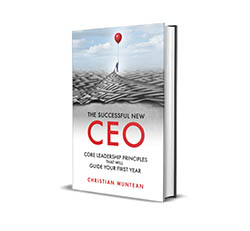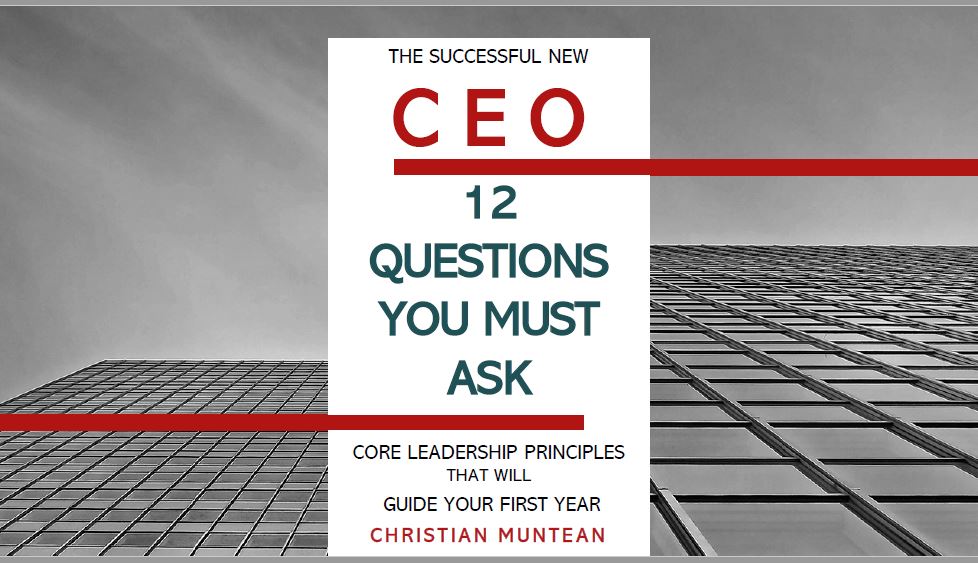You Probably Have The Wrong Accountant

I often refer to other professionals. The type of professional I refer to the most often is an accountant. Usually either (or both) a fractional CFO or a CPA specializing in tax strategy.
specializing in tax strategy.
Most clients are very reluctant to leave their current, painfully underperforming accountants or in-house way of handling accounting.
However, when they are willing to take that leap, the experience is always dramatic. Recent examples include:
- Receiving six figures back in tax credits.
- Uncovering years of embezzlement and underperformance.
- Learning how to use financial information to improve company performance.
- Being able to expand the business because the finances were current and transparent.
- Finding peace.
Again – the above people all had accountants. But they had the wrong ones.
I hear stories like this on a regular basis. And more:
- The trusted employee who was finally caught skimming the books.
- The accounting department didn’t pay taxes on time and accrued crippling penalties.
- A nonprofit board director threatened with arrest for fraud because of non-compliant and unethical practices on the part of employees.
- Tax accountants who are disinterested in staying current with changes in tax law – and miss massive opportunities for their clients.
- Bookkeepers promoted to CFO due to loyalty but they can’t handle the complexities of large organizations.
- Companies that are financially pinched – only to discover they just aren’t billing or keeping up with receivables.
- CFOs or bookkeepers who die or leave on short notice and no one can decipher their proprietary system of accounting.
The Most Trusted Advisor
CPAs are often the most trusted advisors for business owners. Many times, the accounting team is among the most trusted staff. Personality-wise, they tend to be serious and smart people. They are often hard and diligent workers.
They speak the language of accounting. But most business owners and many executives don’t. It is embarrassing to admit that.
Also, in many cases, the accountant or accounting team doesn’t know how to (or isn’t interested in) speak the language of management.
As a result, the most trusted advisor is given too much trust. Too often, this trust is betrayed.
Don’t Do The Books Yourself
If your entire business is selling handmade jewelry at street fairs a few times a year – do your own books. Otherwise – don’t.
Sometimes I meet owners or executives who have accounting backgrounds or just enjoy numbers. For reasons ranging from not trusting anyone or not wanting to pay someone they do the books themselves.
If you are an owner – you immediately reduce the value of your business by doing this. Bad idea.
Whether you are an owner or not, any time you spend doing the books is time you aren’t spending on building the business. You are misplacing your time and energy.
Additionally, you are increasing the dependency of the company on you. This will limit growth, further devalue the company and contribute to your burnout. Plus, you probably aren’t as good of an accountant or tax strategist as you think you are.
You Need a Good Financial Team
Don’t cheap out on your financial team. Don’t hire your spouse or that kid who is “good with computers” or the “engineer who is really smart” to do your books. I’ve seen it all. All end badly.
Hire someone who is already a professional at the job you are hiring them to do. In the long run, they’ll be less expensive. Plus, they’ll get the job done correctly with less headache and heartache.
What The Team Should Do
Aside from the basic functions of their roles, this team should provide you with information that helps you more effectively manage and lead.
They should help you set up financial controls – to protect you from dishonest people and to keep the honest people honest.
They should set up accounting systems that are transferable and easily transparent.
They should provide financial statements, on a monthly basis, at a minimum.
They should be responsive, timely, clear, able to explain things in a way that you understand them, and willing to acknowledge their own limits. Jettison anyone who doesn’t match that description.
They Are Not All The Same
Accountants are not all the same. Very few are even able to function in all the roles I describe below. But if someone is that skilled and worth listening to, they aren’t wasting their time trying to fill all those roles.
Avoid any individual who tells you they can do it all. No one who is an effective high-level strategist will also spend their time doing your books. However, if they have a firm, they may have a team that can do more.
Bookkeepers: Some accountants are proficient at bookkeeping or keeping your accounts. Their job is to record transactions. They should be precise, timely able to explain (in terms that matter for management) what is going on. They should follow Generally Accepted Accounting Principles (GAAP) and apply those to how they structure and keep your accounts. They should also use a software product that is widely used for accounting – not their own proprietary software or an excel spreadsheet.
Controller: As companies grow, they start to develop more complexity. They may need several bookkeepers or develop separate payable/receivable/payroll functions. A controller oversees this, ensures that financial controls are being utilized, they may analyze data for decision making, and help connect with other professionals – like bankers, accountants, or attorneys.
Tax preparation: These professionals should be good at accurately preparing taxes. At a minimum, they should be able to keep you on the right side of the IRS.
Tax strategist: These accountants (and attorneys) can help you see opportunities or define tax-saving strategies. They help you define a tax strategy for the year. This includes when and how to relate to capital investments, benefits, and so on.
CFO: A chief financial officer is able to translate the financial language into management language. They can set up financial management systems, they can inform business strategy, they can provide useful and timely financial analytics, they can provide a significant level of risk management.
When Do I Build This Team?
Small companies (generally under $3M-$5M in annual revenue) should outsource most if not all of these services, including bookkeeping. There are exceptions. But few companies need this kind of professional support available full-time.
You may feel like you are too small for a fractional CFO. But someone in this capacity can be critical in helping you set up a strong financial management system. They also should be able to help you learn to use your financial information to manage your company.
Once companies start to grow, and especially as they transition through the $10M-$20M range, it often makes more sense to begin in-housing at least some of these professional functions. This is usually first a bookkeeper(s) and then a controller. The tax advisors and CFO are still needed but outsourcing them still, usually, makes the most sense.
Typically, around the $50M-$100M range, you start building out a small professional staff. At this level, you start bringing in one or two executive level advisors (often a CFO should be the first).
Build Accountability Into The Team
Plan on having a minimum of two of these advisors. Maybe three. Even for a one-person shop (like mine) – a part-time bookkeeper, a tax preparer, and a strategist or fractional CFO is a good team.
Don’t hire them all from the same firm. At a minimum, either the tax strategist/preparer or fractional CFO should be independent. Neither this person nor their firm should be able to touch your company’s money. This provides an independent set of eyes looking over the shoulders of those who do touch your company’s money.
Summary
Like it or don’t – money is the lifeblood of an organization. You won’t do much for long without it. Make sure the people who directly manage it know what they are doing and are able to easily work with you. Ensure that you have systems in place to keep everyone’s noses clean.
Take good care,
Christian
There are 𝟭𝟮 𝗰𝗿𝗶𝘁𝗶𝗰𝗮𝗹 𝗾𝘂𝗲𝘀𝘁𝗶𝗼𝗻𝘀 to ask before accepting a new CEO position. Do you know what they are? Instantly download my free e-book here.
𝗧𝗵𝗲 𝗕𝗲𝘀𝘁 𝗧𝗶𝗺𝗲 𝘁𝗼 𝗖𝗿𝗲𝗮𝘁𝗲 𝗔𝗻 𝗘𝗺𝗲𝗿𝗴𝗲𝗻𝗰𝘆 𝗦𝘂𝗰𝗰𝗲𝘀𝘀𝗶𝗼𝗻 𝗣𝗹𝗮𝗻 𝗶𝘀 𝘽𝙚𝙛𝙤𝙧𝙚 𝗬𝗼𝘂 𝗡𝗲𝗲𝗱 𝗜𝘁.
Be prepared for a smooth transition in the event of an unplanned emergency succession. My guide will show you step-by-step how to devise your own plan.
Are you interested in learning more about becoming a successful CEO? If so, get a free copy of my book The Successful New CEO. Not a new CEO? I’ve been told by “old hands” that they felt any CEO should read this. So, click here to get your copy today.
by “old hands” that they felt any CEO should read this. So, click here to get your copy today.
Let’s connect.
I’m passionate about helping leaders to create workplaces they love going to and increasing the value of the services they offer. My results-oriented approach is tailored to each client’s specific situation and needs. As a leadership coach, I have developed a wealth of resources to help you and your team grow and become stronger.
Weekly Newsletter – sign up to receive my weekly articles addressing critical leadership challenges and issues.
The Leadership Coach Podcast – In my podcast, we explore effective, high-impact, and enjoyable leadership. Subscribe.
Find the value of your company with my free assessment tool: The Value Builder System
The Value Builder System™ is a 13-minute online questionnaire that evaluates your business on the eight factors that contribute more to its attractiveness and value. These factors are scored on a scale of 1-100. Businesses that score over 80 are likely to command 70%-100% higher value than others.
Opportunities
Executive and Leadership Coaching: Do you feel overwhelmed? Are you not getting the results you expect from the effort you are putting in? Do you find yourself facing similar challenges time and time again? Would you like to change specific ways of relating or reacting? If you would like to experience predictable, measurable growth Contact me.
Profitable Exit Strategy Workshop: Are you a business owner or partner? Over 55? Starting to think about exiting your business or active management in the next 3-5 years?
- Curious about what your business might be worth?
- Would you like to discover the specific steps you need to take to increase its value and become highly attractive to a buyer?
- Are you planning on handing it over to family or employees and you want to ensure long-term success?
If so, contact me now
Article Categories
Popular articles

Download my free 10-page eBook:
How To Accomplish More Without Doing More:
Eight Proven Strategies To Change Your Life
Discover how to save eight hours during your workweek-even if you're too busy to even think about it. The resource every maxed out executive needs.

